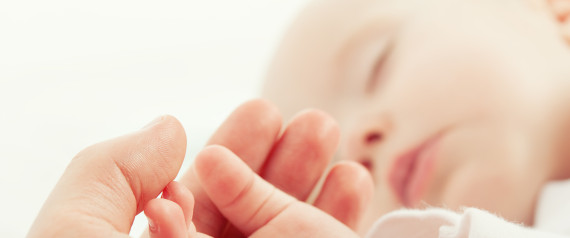Genetic Gender Anomalies
"The way that we took care of things in the past ... where there was a fair amount of secrecy, where there was surgery done in the infant state, and potentially irreversible surgery, is probably not the best way to go about things."
Dr. Earl Cheng, chief, development disorders program, Anne & Robert H. Lurie Children's Hospital, Chicago
"There was some angst about getting surgery done when she was an infant. I wouldn't let anyone babysit for her or change her diapers, other than my mom."
Chicago mother of 8-year-old intersex child
 |
| Shutterstock/Evgeny Atamanenko |
The delighted, anxious parents of a newborn want to have assurances from the medical team assisting in the birth that their miracle-of-nature is sound and healthy, that everything is 'normal', above all. The burden of fear of the unknown, of the pain of imagining the difficulties that lie ahead for their offspring if they are somehow different constitutionally, physically, mentally, than expected, can incapacitate parents' nurturing skills and create an aura of panic.
And what was commonly the reaction to the discovery that a child's sexual organs were not 'normal', but might present confusingly as a bit of each gender not necessarily reflective of the child's gender-specific presentation, once a Century earlier, would have resulted in immediate, remedial surgery to remove the inappropriate genitals. This would be of comfort to parents who wanted their child to be whole and completely dedicated physically to the obvious gender role.
Except that as usual when humankind often seeks to remedy nature's occasional errors, things might have been more complicated than the response seen as a cosmetic remedy. During the era of dawning surgical techniques to correct any ambiguity over the correct genitals, parents were encouraged to have their infants undergo 'corrective' surgery, and then focus on raising them in a manner consonant with their obviously visible gender.
Cruelly, circus sideshows satisfied public curiosity over these natural anomalies reflecting either nature's sense of humour or cruel fate, by featuring people whose intersex characteristics represented an unending source of amazement and even amusement to a public fascinated by any and all human characteristics out of the ordinary.
Now, in a more sensitively enlightened era, such surgeries are no longer necessarily recommended, with U.S. and European medical specialists advocating against such emergency-responsive surgeries. The situation of intersex conditions is weighted with emotion and with controversy. Even so, some families remain convinced that early surgery will correct any future uncertainties; their children will not resemble freaks of nature.
At the Chicago hospital where Dr. Cheng practices, his program represents one of a number nationwide, using the professional expertise of specialist teams that include surgeons, hormone experts, genetic counsellors, psychologists and ethicists. Advice from such teams help families to consider options, including whether surgery is even required for their child.
Intersex conditions are not to be confused with gender identity issues. Gender orientation relates to someone's identification as either male or female, or not (androgyny), despite their appearance and their genitalia specific to their appearance. Whereas the intersex condition involves anatomy where some children may have typical male or female chromosomes affected by genetic anomalies and hormonal difficulties from the womb onward.
Some children end up having genitals that resemble those of the opposite sex, while others may have a male-female combination of sex chromosomes and resulting reproductive organs. Over one in a thousand newborns may present within the spectrum of intersex conditions reflected by mildly atypical genitals, rising to one in five thousand with more obvious instances of the gender anomaly.
The child whose mother spoke of protecting her from the curiosity of others had an intersex condition, congenital adrenal hyperplasia, resulting in male appearance genitals involving overproduction of male hormones, and which could actually become deadly without the initiation of lifelong hormone treatment. Another individual, now an adult, who had testes inside her abdomen and male chromosomes at birth, has androgen insensitivity syndrome.
Her undescended testes were removed in infancy as a preventive in developing cancer. The prevailing opinion in the medical community now is that some children instead of undergoing surgery to remove the secondary genitals, should rather have their condition monitored. The young woman with the undescended testes was born without a uterus and with a partial vagina.
She struggled with depression until meeting other young intersex adults who have learned to live with equanimity with their physical differences from what is normal. Now she has renamed herself, as Pidgeon Pagonis and sees no need to identify herself as female or male. Her work revolves around her profession as an artist, and as an intersex activist spurning surgeries.
"Take them home and love them ... just the way they are", she advises parents with intersex infants.
Labels: Child Welfare, Gender Inequality, Health

0 Comments:
Post a Comment
<< Home